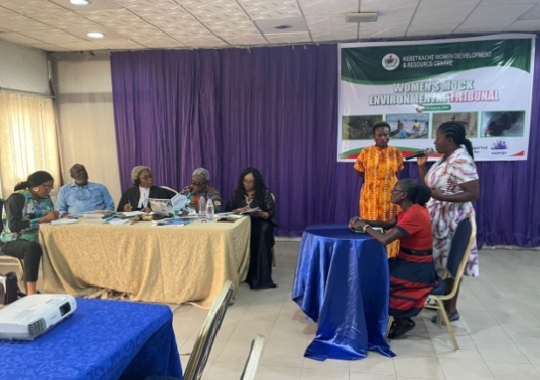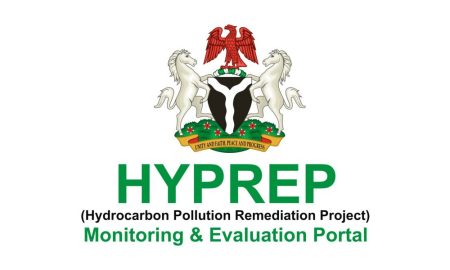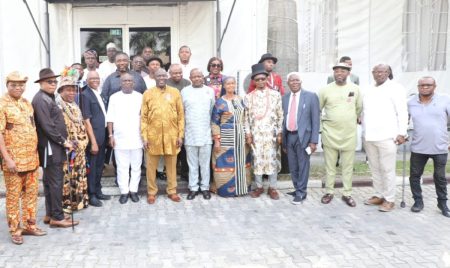
Mkpoikana Udoma
Port Harcourt — Women from Niger Delta communities affected by environmental pollution from oil and gas operations, have been trained by Kebetkache Women Development and Resource Centre, on how to gather evidence in order to seek justice against IOCs before the law.
The women, who are victims of pollution from oil majors including Agip, Shell, TotalEnergies, and others, presented their cases before a panel of judges in a mock tribunal, demanding justice and compensation for the destruction of their livelihoods and health.
The mock tribunal held in Port Harcourt, and organized by Kebetkache Women Development and Resource Centre, aimed to build the capacity of women to access justice and draw attention to the adverse effects of environmental abuse on women in oil and gas host communities.
The women presented four cases with evidence and testimonies, each highlighting the devastating impact of pollution on their lives, while demanding clean-up and restoration of their environment, provision of social amenities, and payment of compensation for loss of livelihood and health challenges.
Mrs. Peace Mgbenwa, representing Okwuzi women in Ogba/Egbema/Ndoni LGA of Rivers State, told the tribunal that Agip’s operation in the Okwuzi/Egbema axis has left the community in ruins due to gas flare.
She said, “Agip has continued to deny women access to dialogue, even as they have failed to provide us social amenities to cushion the effects of their gas flares which have caused much damage to our traditional farming and fishing livelihood, properties and health of the people, especially the women.
“A trending consequence of the pollution from the gas flare is a spread of a peculiar rash attack on the skins of community members manifesting in horrible itches and rashes,” she said.
Mgbenwa presented two pictures showing the patched skin of victims and prayed that Agip be made to end gas flare in the community, clean up and restore the environment so that women can begin to farm and expect fruitful yields and healthier lives.
Her case was, however, struck off for lack of medical report from a public or reputed consultant to establish a link between the skin disease and the gas flare.
Another complainant, Mrs. Martha Egbe, representing Eleme women, lamented that environmental degradation from many years of Shell’s activities has caused unexplained deaths in the community, and cited the UNEP Report of 2011 which identified very high levels of air, water and soil pollution in Eleme communities.
“People are sick and dying every day, sending panic in our communities. Following years of non-remediation of the environment, poverty from displacement from their traditional farming and fishing resulting from the destruction of both their land and waterways, adds to the stress causing death,” she said.
Explaining that farm yields have seriously dwindled, discouraging farmers, Egbe presented to the jury, a poor yield maize harvested from her farmland and pictures of the air-polluted space to the jury.
She demanded that Shell should be asked to clean up and restore Eleme land to its old status of a rich agricultural land.
After fielding questions from members of the jury, the presiding judge, Mrs. Rose Inko-Dokubo ruled that the Eleme petition has merit but needs updates on HYPREP’s efforts in response to the UNEP Report has done.
Mrs. Blessing Orijos, Secretary of Rumuekpe Women Prayer Band, narrated how hosting major oil companies has destroyed life in Rumuekpe, noting that a spill that occurred from Shell facility in 2013 worsened their plight.
“Many companies, including Shell, NDPC, and Total E&P, operate in the community but rather than be a blessing, their presence has caused the people, especially women, much pain and death. The constant pollution from their operations has highly degraded the environment,” she said.
Orijos who identified herself as one of the victims of air pollution from gas flare, which damaged one of her eyes, said many people in the community suffer from eye diseases, and early menopause while the community despite hosting IOCs lacked social amenities including roads, water, schools.
She narrated that Rumuekpe women had earlier organized rallies up to Port Harcourt, publicly protesting the destruction of their lives by oil and gas operations in the area, and asked the tribunal to compel Shell to restore the health of the community’s environment.
After interventions from jury members, the presiding judge ruled that the Rumuekpe case has merits and needs to be taken up by lawyers and advised that as much evidence, year by year, exposing harms done to the community in the 11 years of the pollution, as possible should be collated.
Lastly, Mrs. Belated George, representing Otuobagi Community women from Bayelsa State, told the tribunal that her community was host to Nigeria’s first commercial oil extraction and has since been left desolate, denying them the benefits that should have accrued from that vantage position.
“Research has shown that there are particles of crude oil in our bloodstreams, while vices reign in our land as a result of long neglect. Otuobagi is host to 22 of the 24 oil wells in our area yet boasts of no social amenities except for the water from an NDDC project.
“The once rich farming and fishing community is no longer productive spreading poverty, hunger and sickness thanks to continued cases of oil spills even after Shell has pulled out from the area.”
George presented as evidence, copies of a research report conducted by Kebetkache on the Social and Health Implications of Oil Activities in Otuobagi, which she explained had been presented to Bayelsa State government and copies sent to relevant MDAs.
She prayed the tribunal to order Shell to come back and restore the Otuobagi community’s environment.
The Presiding Judge, Mrs. Rosemary Inko-Tariah Esq. ruled that the Otuobagi women have a good case to pursue, noting that the Report presented is evident and needs to be followed up, thus the people
“The people of Otuobagi are entitled to seek compensation for damage, proper health healthcare, etc. Otuobagi should be properly put in the oil map.”
Meanwhile, the Convener of the mock tribunal and Executive Director of Kebetkache, Dr. Emem Okon, said the tribunal which was the fifth edition was aimed at drawing wider attention to how environmental abuse affects women in the host communities and also building the capacity of women to access justice.
The foremost women and environmental advocates in the Niger Delta called on community women to see the day’s proceedings as capacity building” and embrace knowledge gained, urging them to become more intentional with documentation as a path to achieving the sought environmental justice.
“Everything happening in your community, every action you take, there must be documentation. Take pictures, report and document, and write to companies before your actions. If we have to take cases to court, we need to be prepared,” Dr. Okon charged.



